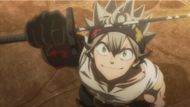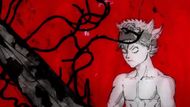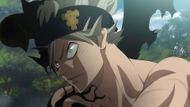When Weekly Shonen Jump Issue #32 dropped the big news that the Black Clover TV anime is officially returning, it wasn’t just good news; it was a milestone. After years of uncertainty, endless speculation, and only a single film (Sword of the Wizard King) to tide us over, Asta and the Clover Kingdom are finally coming back to our screens.
But beyond the obvious fanfare, there’s another story here: Yuki Tabata’s role in the anime’s comeback underscores how deeply he’s been influenced by Bleach and its creator, Tite Kubo. This isn’t just about stylistic homages or surface-level similarities.
It’s about shared creative DNA, a similar career trajectory, and the way both mangaka have navigated industry pressures to protect their vision. The return of Black Clover feels, in many ways, like a full-circle moment for Tabata, his series, and for the Bleach-inspired shonen lineage he’s part of.

When the Black Clover anime went on hiatus in March 2021 after 170 episodes, it wasn’t because of a lack of popularity. On the contrary, it was one of the most consistent mid-2010s Shonen Jump anime, with an enthusiastic global fanbase. The problem was pacing. The anime had caught up to the manga, and Studio Pierrot was in danger of slipping into filler hell.
The Black Clover anime’s return isn’t just a studio decision. Tabata has been actively involved in overseeing how his story is adapted, just as Kubo had significant input in Bleach’s TYBW revival.
For years, Tabata has been vocal about wanting the anime to faithfully represent his vision. The pause in production wasn’t just about avoiding filler; it was about waiting until there was enough material for Pierrot to animate arcs with the kind of polish they deserve. With the manga now deep into its final saga, the timing couldn’t be better.
Tabata’s willingness to coordinate with Pierrot, align the anime’s schedule with his manga pacing, and use anniversary hype to amplify the return all mirror the kind of strategic thinking Kubo displayed when greenlighting TYBW’s adaptation. Both creators learned the same lesson: if you want your anime comeback to hit, you control the timing and make it an event.
Pierrot’s Post-Bleach strategy and Black Clover’s future

With TYBW wrapping and Boruto: Two Blue Vortex also in the works, Pierrot’s schedule is in flux. Slotting Black Clover into a post-Bleach production cycle means the series could benefit from the same cinematic approach, seasonal batches instead of endless weekly episodes, higher average animation quality, and more flexible release windows.
This is exactly the formula that has revitalized Bleach, and it could do the same for Black Clover. If the studio leans into limited, high-budget courses, we might see fight sequences rivaling the best shonen anime of the past decade.
Shared career parallels between Tabata and Kubo

The connections aren’t purely aesthetic. The careers of Tabata and Kubo have followed eerily similar beats:
- Breakout Shonen Jump Success: Both men debuted series that quickly became staples of Jump’s battle shonen lineup.
- Production Pressure and Burnout: Kubo’s later Bleach years were marked by health struggles and a punishing weekly schedule. Tabata faced the same reality, compounded by family responsibilities.
- Hiatus to Protect Health: Kubo ended Bleach earlier than planned, later explaining that physical strain made it impossible to continue as before. Tabata made the proactive choice to slow Black Clover’s serialization pace.
- Triumphant Returns with Studio Pierrot: Both creators have had their works return to anime with Pierrot pushing high-quality adaptations (Bleach: TYBW for Kubo, the upcoming Black Clover continuation for Tabata).
These shared beats make Kubo’s presence in the 10th anniversary celebrations feel symbolic, almost like passing the torch between generations of shonen authors who survived Jump’s notorious grind.
Final thoughts
As the new season goes into production, one thing is clear: the magic of Black Tabata's involvement in Black Clover Anime's return proves Bleach and Tite Kubo truly influenced himhas always been about more than grimoires and mana. It’s about the fire of shonen storytelling passed from one generation to the next, kept alive by creators who inspire each other to push boundaries. And in that sense, Tabata’s biggest influence isn’t just Kubo’s work. It’s Kubo’s example.
